This is no secret! The Japanese love to wear masks whatever the occasion. In big cities, especially in Tokyo, people admit that they like to wear a mask made of Japanese fabric for the feeling of intimacy they provide in a city that is overcrowded.
But that's not all, the land of the rising sun has ancient customs related to traditional Japanese masks. These ancient masks have been linked to Japanese culture for centuries!
Japanese masks are an art form. They are worn in the Japanese theater, during some matsuri festivals, during Shinto ceremonies but also by samurai of the Edo era. These traditional Japanese masks represent demons or Japanese gods!
In order to better understand the meaning of traditional Japanese masks, we have prepared a top 15 about the the strangest, most fascinating and famous masked characters in the Japanese archipelago!
1. JAPANESE DEMON MASK MEANING
 Oni demon mask worn with a Japanese katana
Oni demon mask worn with a Japanese katana
In Japanese folklore, an oni is symbolized by an ogre or at least a Japanese demon. They are evil creatures that come to torment humans. The color of their skin is blue or red, they have horns and sharp teeth. They are the western equivalent of our demons of hell.
However in Japan, the Oni mask can look scary or funny. Demon masks are worn by parents in the Setsubun festival. During this festival parents will dress up as demons to scare the children! And the children will scare the nasty Japanese monsters by throwing beans at them! If you want to know more about the Oni masks, we have written a complete guide about the Japanese Yokai.
2. KITSUNE FOX MASK MEANING
 Traditional Kitsune Mask
Traditional Kitsune Mask
In Japanese Kitsune is translated as Fox. Kitsune is a kami (Japanese god). This fox god is the most appreciated Japanese deity in Japan. In Japanese mythology, foxes are the messengers of Inari. She is the Japanese goddess of agriculture. In the Shinto religion, these beings possess magical powers such as taking human form and making illusions.
They love to transform themselves into a beautiful woman or an old man to deceive humans! The fox mask is worn during the festival of Kitsune no yomeiri gyôretsu in Niigata-ke prefecture. The Japanese kitsune mask is worn by the participants of the festival to celebrate the Japanese legend about the marriage of foxes!
The traditional kitsune mask is so popular in Japan that it can also be seen in the most read manga like Naruto. In this shonen the hero is possessed by the nine-tailed fox demon Kyubi. The special troops of the village hidden from the leaf wear an Anbu mask. To learn more, you can read our article about the full Kitsune legend!
3. HANNYA MASK MEANING
 White Hannya Japanese mask
White Hannya Japanese mask
Although Hannya is also an oni, this vengeful demon is represented by a white mask. The hannya mask is used in Japanese theater. The Japanese mask Hannya symbolizes Lady rokujo. Totally in love with a vengeful and destructive love, she transforms herself into an avenging Yurei (ghost) to torment the human world.
The hannya mask is very popular in Japan. It can also be seen in the manga Naruto but also in the Japanese anime: Kakuriyo no Yadomesh. There are many stories that revolve around it so to know more about it, consult the history of the vengeful demon hannya.
4. TENGU MASK MEANING
 Japanese tengu red mask with a long nose
Japanese tengu red mask with a long nose
In early Japanese myths, the Tengu were defined as evil demons bringing misfortune. Today they are associated with Shigendo rites. It is a thousand-year-old Japanese spiritual tradition that emphasizes the relationship between man and nature. Today they are highly respected as protectors of mountains and forests.
Thus, the oni tengu looked like winged creatures with a long beak! The image of the Tengu demons has evolved over time to look like humans with a very long nose. The Japanese Tengu mask is worn at some festivals. It also has a symbolic connotation in some temples and shrines.
5. VISUAL KEI MASK MEANING
 Japanese woman wearing a visual kei mask
Japanese woman wearing a visual kei mask
Visual Kei is a style of Japanese music inspired by glamour and punk trends. Just like in Jpop, Japanese singers like to mix genres and styles. The greatest Visual Kei artists wear Masuku masks. It is a Japanese protective mask made of fabric with prints or innovative materials.
6. SAMURAI MASK MEANING
 Japanese samurai dragon mask handmade by our craftsman
Japanese samurai dragon mask handmade by our craftsman
The Japanese samurai mask has had many forms over the centuries:
- The somen mask covered the whole face.
- The hanbo mask protected only part of the neck and chin.
- The mempo mask covered the ba of the face from the eyes.
The samurai half mask is the most famous because it symbolizes faces of Japanese demons with fangs or ferocious smiles. The goal was to scare the other samurai warriors during the fights!
The traditional samurai mask is made of leather and iron. At Kimura Kami, we work with a craftsman who makes his own Japanese samurai masks and accessories. These samurai masks can be worn to complete a cosplay costume, for Halloween, by airsoft players or for theme parties!
7. JAPANESE FESTIVAL MASK MEANING
 The white kitsune mask is worn during Japanese summer festivals: Matsuri / Image under Shutterstock License
The white kitsune mask is worn during Japanese summer festivals: Matsuri / Image under Shutterstock License
If you are participating in a festival in Japan, we recommend that you buy a mask directly at the festival. All matsuri are attended by street vendors. They are mostly light masks, and the prices are interesting. You will be able to set your heart on :
- A manga mask
- A Japanese cat mask
- Or any kind of kami mask
The vendors offer masks the size of a child's face. That's why Japanese people wear their masks on the side, because they are too small for their face!
8. KAPPA MASK MEANING
 Wooden Kappa mask theater with a Noh style
Wooden Kappa mask theater with a Noh style
In Japanese legends, Kappa is a Japanese river monster. It loves to challenge humans during sumo wrestling. It also attacks swimmers. Kappa masks are rarely seen in Japan (except in the theater).
9. KOMAINU MASK MEANING
 Splendid Japanese Lion Mask made by one of our craftsmen
Splendid Japanese Lion Mask made by one of our craftsmen
The komainu is the guardian of the temples. It is also associated with the Japanese lion. The Japanese lion mask is mostly worn in manga and Japanese animated films. The komainu mask symbolizes ying or yang because these divine animals are always in pairs. They protect Japanese temples from evil spirits!
10. JAPANESE MASK TATTOO MEANING
 Tattoo half japanese mask over a skull / Tattoo hannya mask
Tattoo half japanese mask over a skull / Tattoo hannya mask
The history of Japanese tattooing goes back to prehistory and the Ainu people. But the traditional Japanese art of tattooing as we know it is called Irezumi. It is a traditional technique that uses a tebori. This tool consists of a bamboo and a needle.
The symbolic themes of the traditional Irezumi tattoo are: the dragon tattoo, the koi carp tattoo, the Japanese cherry tree tattoo or the Japanese mask tattoo. A Japanese mask tattoo often symbolizes an Oni or Hannya demon.
In our article on Japanese history tattoos, we explain that the members of the Yakuza clans performing this painful tattoo wish to embody within their skin a destructive behavior and a desire for revenge!
11. JAPANESE THEATER MASK MEANING
 Japanese theater Mask - Japanese Noj mask
Japanese theater Mask - Japanese Noj mask
No masks are used for Japanese theater performances and dances. Each mask represents a person, an oni, a hero, a yurei or a divine Japanese animal! During the Edo period, women's roles were also played by men.
The Japanese No theater mask is a unique piece of craftsmanship because depending on the angle from which it is viewed, the facial expression of the mask changes with the play of shadows! To learn more about this ancestral art, we invite you to read our article on traditional Japanese theater!
12. HYOTTOKO MASK MEANING
 Mask of hyottoko that inspired the Japanese manga Demon Slayer
Mask of hyottoko that inspired the Japanese manga Demon Slayer
He is a mythical character of Japan. The stories related to the Hyottoko are very different above the regions. A Japanese legend tells that it would actually be a little boy with a burlesque or comic face. He would have the power to produce gold from his navel. In all variations of the myth, Hyottoko is a lucky spirit with a funny face. The Japanese theater mask hyottoko is also used in manga or worn during matsuri festivals!
13. OKAME MASK MEANING
This is the female version of Hyottoko. Both have funny faces are often considered as a pair. Okame is generally regarded as a goddess who generously spreads good fortune. It is common for the shinies to wear huge Okame masks during the holidays.
14. ANIMEGAO MASKS
 Japanese cosplay disguise animegao
Japanese cosplay disguise animegao
The animegao translates as "comic face". They are Japanese masks inspired by anime and manga characters. They are more and more popular among cosplayers from all over the world, especially those from Japan.
15. KENDO MASK MEANING
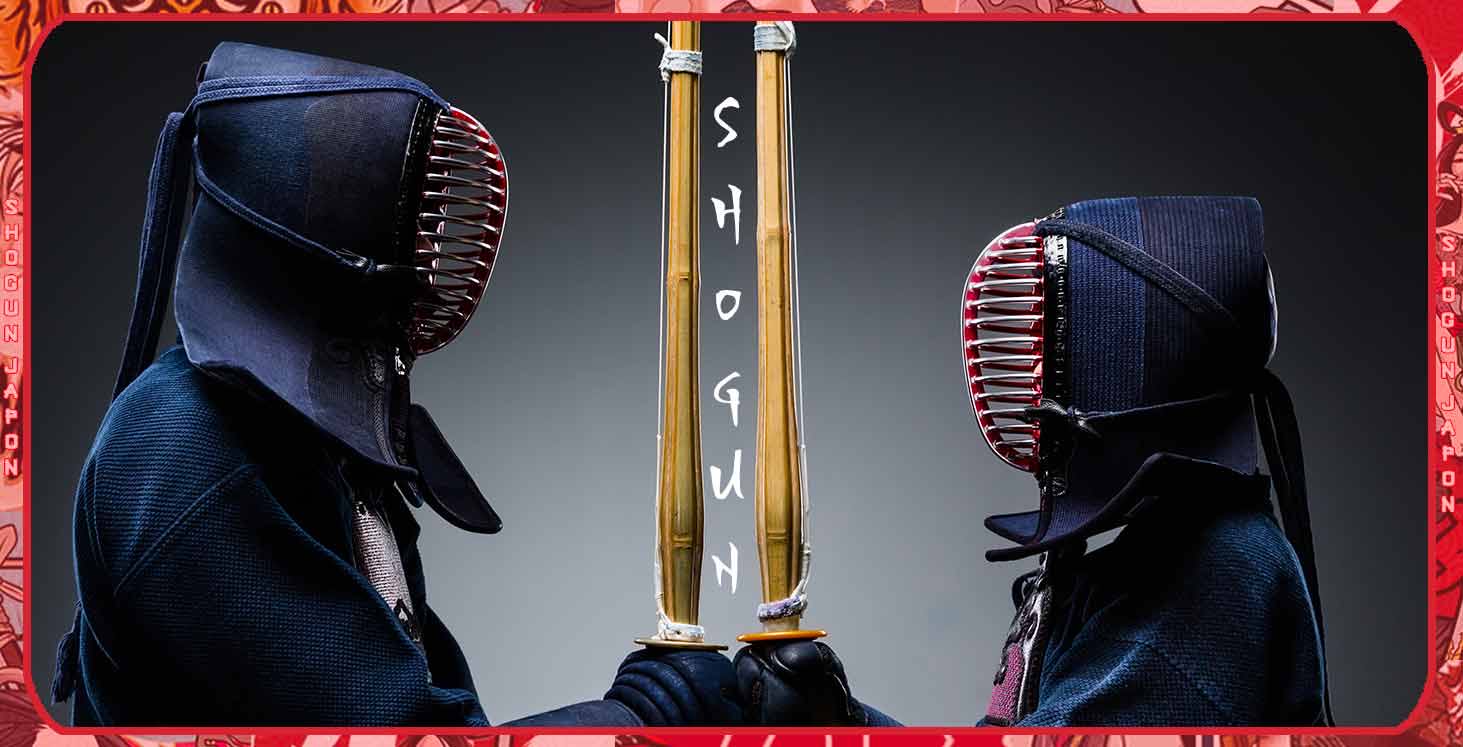 Kendo mask and sword in boi shinai / Image under Adobe stock license / Shogun Retouching Japan
Kendo mask and sword in boi shinai / Image under Adobe stock license / Shogun Retouching Japan
The word kendo is translated in Japanese as "the way of the sword". It is a Japanese martial art that consists of fighting with a bamboo katana and armor. It is a perfect illustration of the art of the samurai. The goal is not performance but the search for self-control and harmony.
Two values that we find in bushido: the ethical code of the samurai. The Japanese kendo mask is devoid of patterns or symbols unlike the mempo mask. Wearing the mask only serves to protect oneself during combat.
WHERE CAN I BUY AUTHENTIC JAPANESE MASK?
We have seen in this article 15 Japanese masks and their meaning. The best advice we can give you now if you want to buy one for yourself is to do it directly in Japan!
However, if you don't have the opportunity to go there we put at your disposal our Japanese masks collection. You will find there all the possible styles!



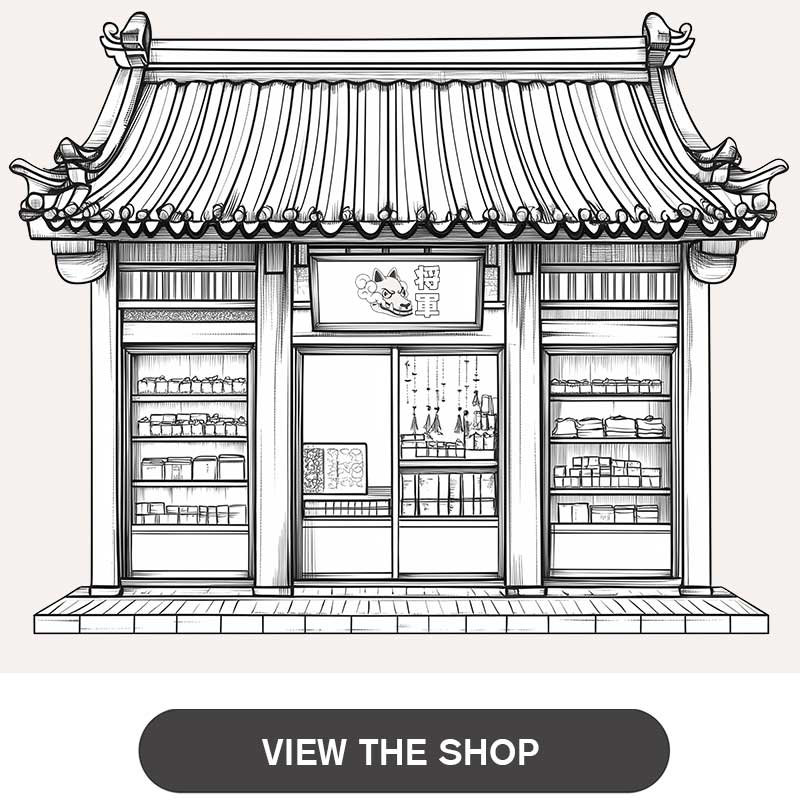
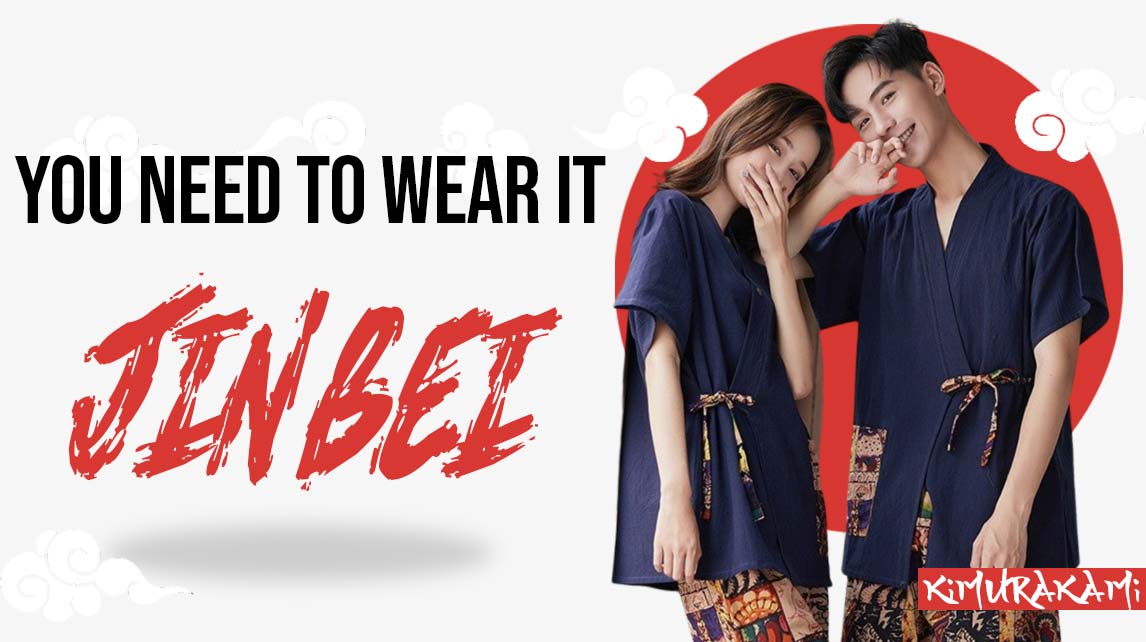
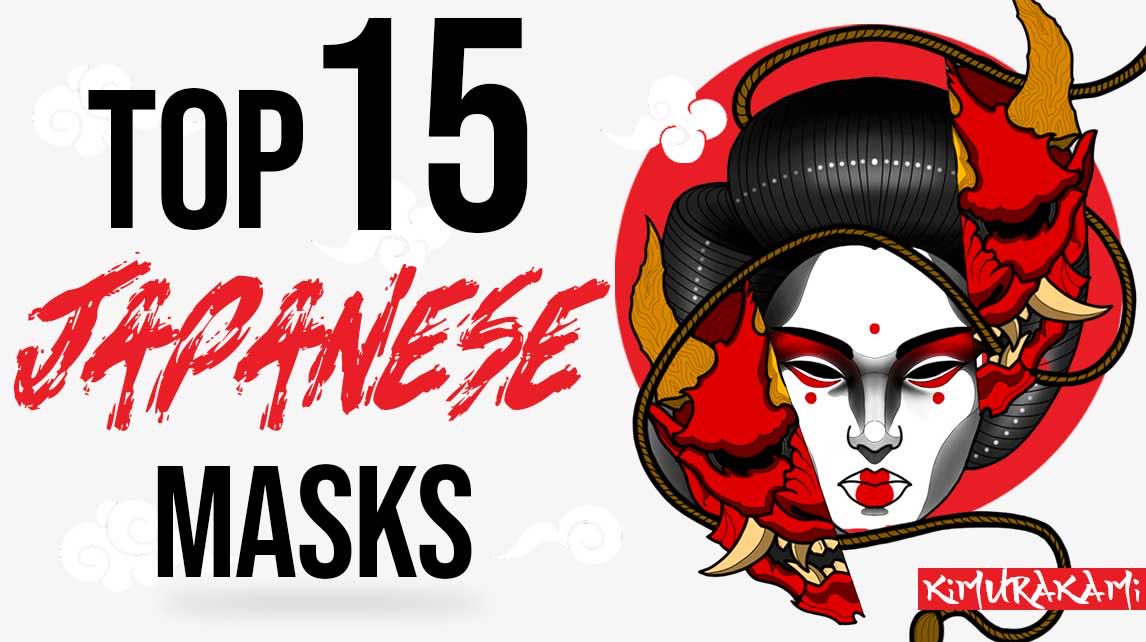
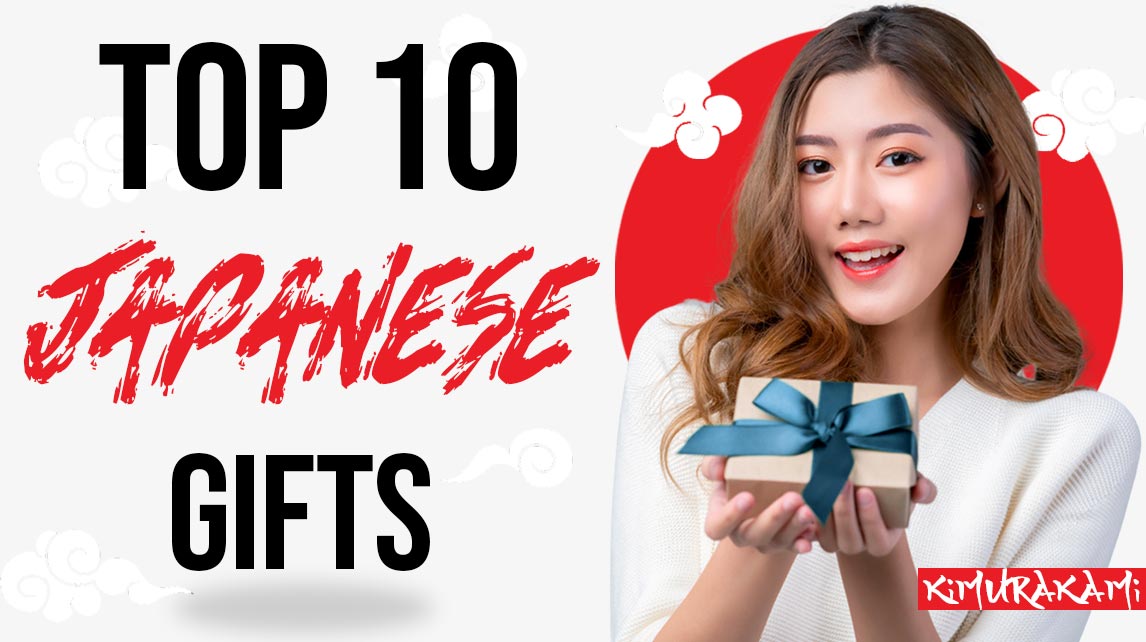
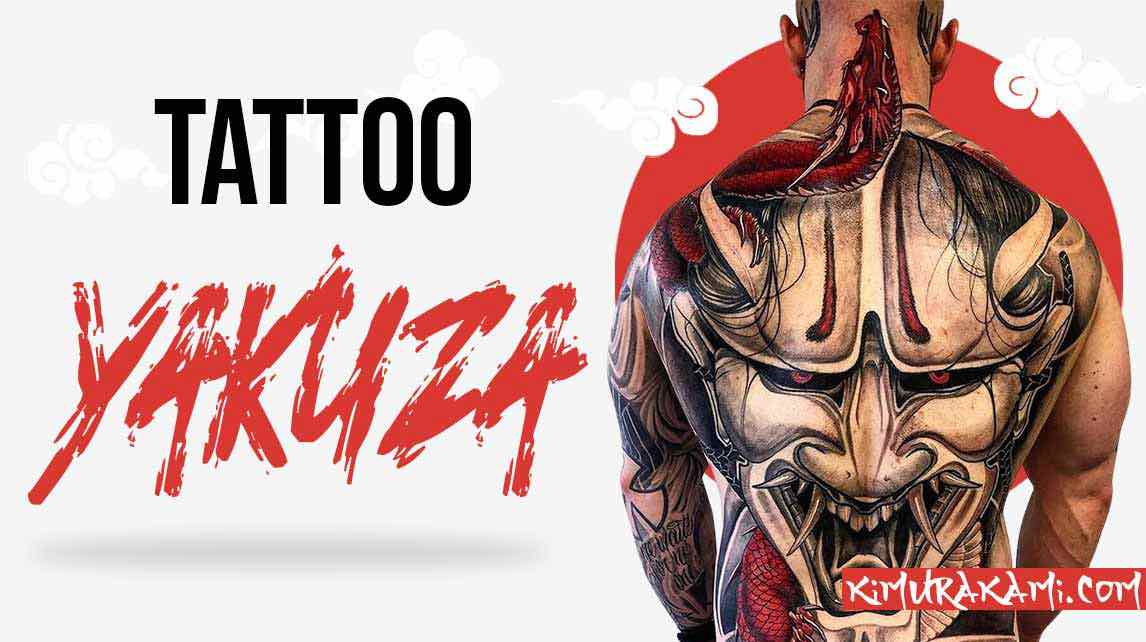
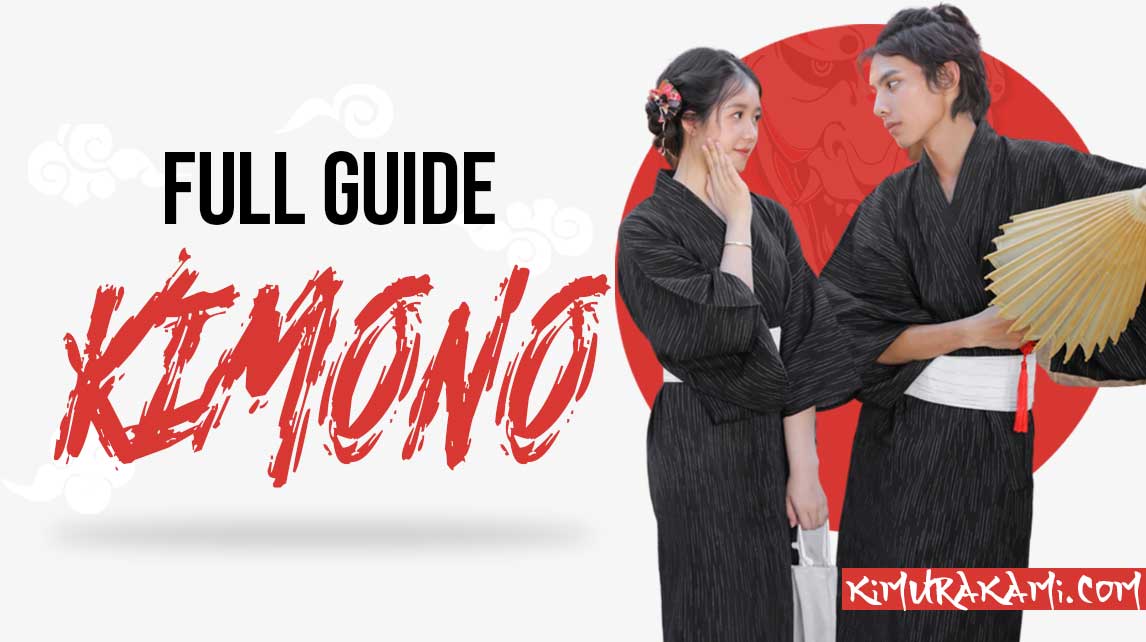
Thanks for the article, I wanted to know more about samurai masks !!!!!!!!!!!!!!!!!!!!! ありがとうございます Arigato gozaimasu
Leave a comment